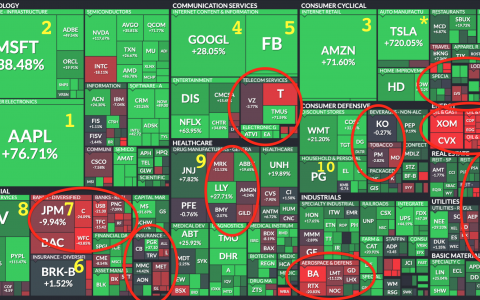
(Yahoo) Wall Street experts are starting to worry about the surging stock market.
While investing is as easy these days as using a smartphone app, the market’s record-high hitting price action is prompting observers like Citigroup’s chief US equity strategist, Tobias Levkovich, to warn about difficulties ahead.
For months, Levkovich has been confident the current situation isn’t sustainable. But now, he’s predicting an imminent fall. If he’s right, investors are sure to feel some pain in the coming months.
And if some act fast, there could be plenty of opportunities as well.
What Citigroup is warning about
Levkovich has been warning about a correction for months now.
“Hitting new highs, leading to new highs means markets never correct, which doesn’t quite make sense,” Levkovich told the hosts of CNBC’s Closing Bell in June.
That same month, Levkovich wrote a note to Citi clients expressing that the company would be maintaining its cautious view over the short term.
In the letter, he adamantly stuck to his year-end target of 4,000 for the S&P 500, which was 5% below the index’s level at the time. At current levels, that target represents downside of up to 10%.
And he’s not the only one worrying about the future. Just a few months before that note, Suze Orman was predicting a slide, too.
But now, Levkovich is anticipating the correction could come as soon as September.
Levkovich is worried about four factors in particular
What’s got Levkovich so concerned about the market’s near future?
There are four factors at play, he says: the Federal Reserve’s discussion on tapering, rising inflation, pressure on profit margins and corporate tax hikes.
The Fed’s impact
The Fed has been purchasing Treasury securities and mortgage-backed securities rapidly at about $80 billion per month and $40 billion per month, respectively.
It said back in June that it would continue that practice until “substantial further progress” had been made toward the Fed’s employment and price stability goals.
Some analysts are anticipating that may happen sooner than later.
This worries Levkovich because a significant part of the S&P 500’s move back to record highs is due to the Fed’s easy-money policies and abundance of capital flooding the market.
The Fed had previously committed to keeping interest rates close to 0% until March 2024, but with the threat of inflation rising higher than previously anticipated, observers are now preparing for as many as two rate hikes in 2023.
Corporate margins narrowing
President Joe Biden has proposed raising the corporate tax rate from 21% to 28%, which opponents worry could disrupt the country’s fragile economic recovery and a big cut to earnings — as much as 13% according to some estimates.
While evidence suggests that corporate tax increases have been far from disastrous to U.S. stock performance historically, profits will certainly be constrained.
Finally, companies are facing even narrower margins these days as consumer prices continue to bump up against 13-year highs. And as legendary investor Warren Buffett once said, “Inflation acts as a gigantic corporate tapeworm.”
How investors should use this information
The combination of those four risk factors has Levkovich calling for a double-digit slide stock market slide in the coming weeks.
That being said, he adds that not every industry will be as impacted by a downturn.
Investors can’t afford to be complacent about their stock choices. When deciding between an asset that promises value or growth, Levkovich suggests investors should prioritize value.
It’s a strategy that the “Oracle of Omaha” Warren Buffett relies on even in a bull market.
And while Levkovich does anticipate growth will see a resurgence later this year, he’s not entirely sold on it as a well-rounded long-term investing strategy.
“If you think of the last decade or so, you’ve had growth outperforming value tremendously so investors are conditioned to buy growth,” Levkovich told the Closing Bell in July. “And as a result, one of the things I worry about is the idea that value is kind of a dalliance, it’s a fling, and then they go back to their true love: growth.”



